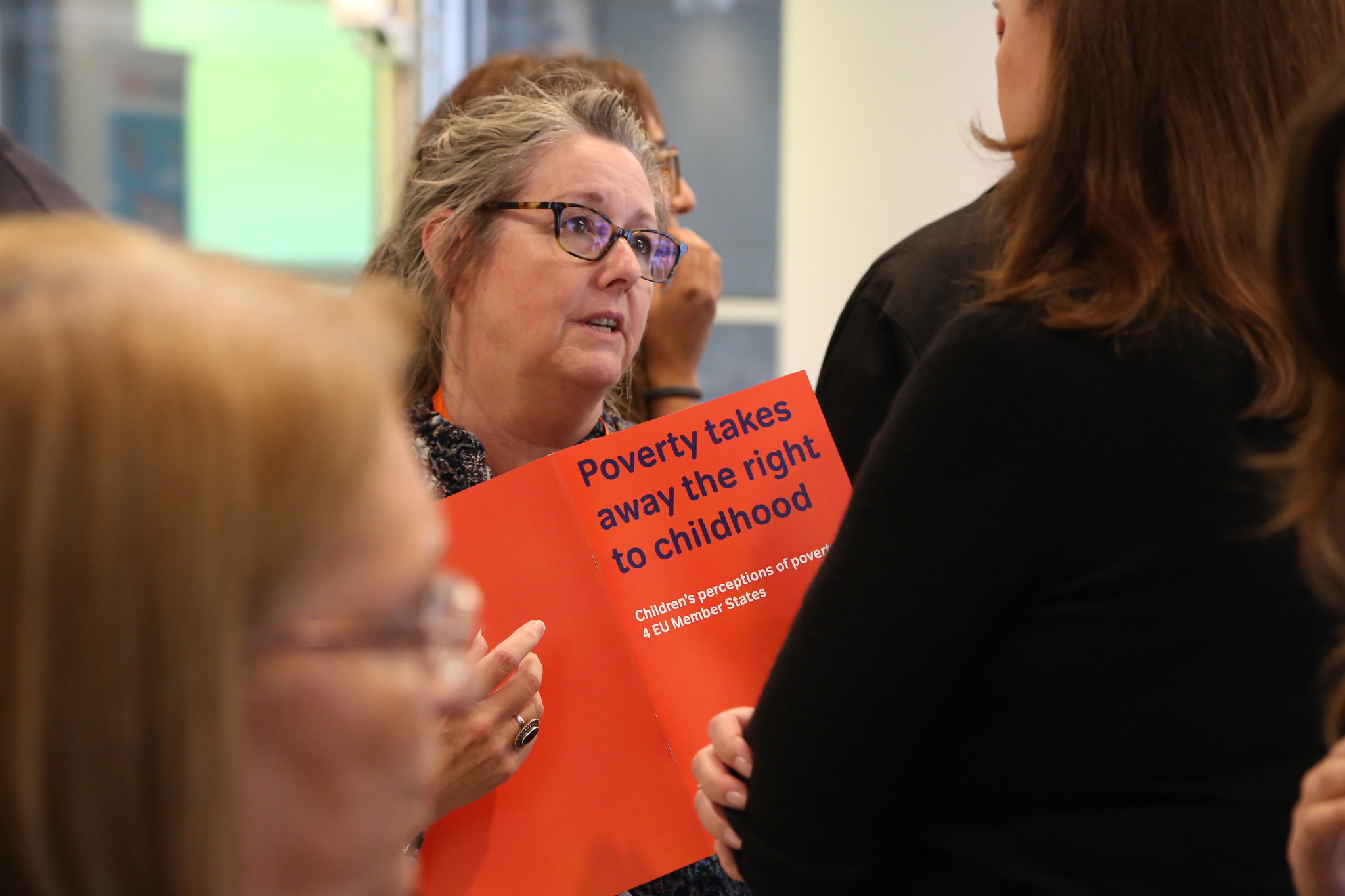Child poverty – Eurochild’s achievements in 2024
Annual Report 2024.
No child should have to live in poverty or experience social exclusion. However, in the EU alone, there are approximately 20 million children, or 1 in 4 children, growing up at risk of poverty or social exclusion. The European Pillar of Social Rights aims to reduce child poverty in the EU by 5 million by 2030, a target Eurochild actively advocates for across its work. Three years after the adoption of the European Child Guarantee, Member States are publishing their first biennial reports, outlining the context, target groups, and services established under their National Action Plans (NAPs). These reports also cover indicators, financing, and key insights from the implementation process. Eurochild analyses these reports and shares findings with decision-makers, national members, and civil society.
As part of our ongoing monitoring, Eurochild reviewed the 2024 Spring Package of the European Semester to assess how children's rights were addressed in the 2024 Semester. The mission letter for the portfolio of European Commissioner Roxana Mînzatu, the Executive Vice-President for People, Skills, and Preparedness, commits to the first EU Anti-Poverty Strategy and to strengthening the European Child Guarantee, aimed at preventing and combating social exclusion through education, healthcare, and other essential services. Additionally, Vice-President Mînzatu has committed to improving the mental health of children and young people. This is also the result of the advocacy of Eurochild and key allies, including our key asks to the Commission before the elections.
To mark the third anniversary of the European Child Guarantee, the Alliance for Investing in Children, co-led by Eurochild and Save the Children, organised an informal networking event with Child Guarantee national coordinators. This successful gathering brought together 68 participants across civil society, national governments and EU policymakers. It provided a valuable platform for networking, fostering meaningful discussions, and presenting Eurochild’s findings on the biennial reports.
In 2024, Eurochild continued our deep engagement on influencing the implementation of the European Child Guarantee. We collaborated directly with the Belgian Presidency of the EU to co-organise and shape a major event on the European Child Guarantee: From Engagement to Reality in May 2024. Eurochild contributed directly to panels on early childhood education and care and child participation. Eurochild helped shape the agenda and facilitated meaningful exchanges on promoting the rights of children in vulnerable situations. Eurochild advocated for the crucial involvement of civil society organisations and underscored the importance of children’s meaningful participation in policy-making and decision processes.
Additionally, Eurochild contributed to multiple high-level discussions on addressing intergenerational poverty. As part of Eurochild’s work with Tanya’s Dream Fund, our project, 'Leveraging EU Influence to Deliver Change for Families in Adversity in Bulgaria', held two peer-to-peer learning workshops in Bulgaria and Spain to unpack interconnected issues facing children growing up in poverty in Bulgaria. The first discussed housing policies, and the second explored family separation due to parental addiction. Eurochild also spoke in a panel focused on finding solutions to intergenerational poverty in Finland and Europe.
Since 2023, Eurochild has led discussions on reducing child poverty through the European Child Guarantee in our active collaboration with the European Social Fund Plus Agency, influencing ESF+ Managing Authorities, public authorities, and civil society to improve the Child Guarantee implementation. In September, we collaborated on the study visit “Exploring Inclusive Solutions: Study Visit on Homelessness, Child Poverty, and Community Living” in Prague, Czech Republic.
Eurochild co-organised the event The European Child Guarantee: Progress and Future Directions at the Three-Year Mark in September 2024, which brought together 140 participants and where critical aspects of the Guarantee have been addressed, including data collection, successes and challenges in implementation, highlighting the need for targeted indicators and greater stakeholder and child participation.





